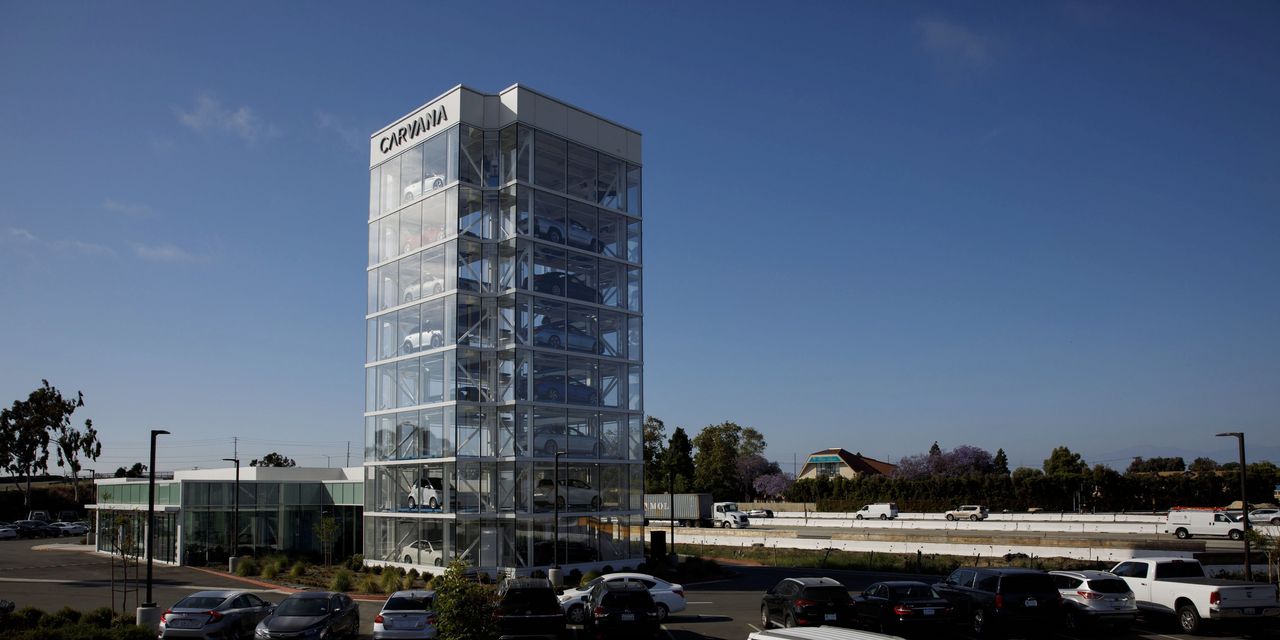Online used-car dealer Carvana Co. , known for its vehicle vending-machine towers, has a secret sauce to its business success: a way of handling car loans that turbocharges revenue.
The company has become a market darling during the pandemic, benefiting from huge demand and high prices for used vehicles. Its stock has skyrocketed more than 1000% since the depth of the Covid-19-related selloff in March 2020 and is now valued at more than Ford Motor Co. at about $63 billion.
Part of the attraction to investors: selling cars is only part of what makes Carvana money. In the second quarter, around 36% of the company’s gross profit per unit came from selling loans it made to customers to buy the cars. Retail sales accounted for 39% of gross profit per unit, Carvana’s preferred earnings measure. Other types of income, including from vehicle-servicing contracts, made up the rest.
Last quarter, the loan surge helped Carvana earn its first ever quarterly profit.
The company had a setback this past week when North Carolina suspended Carvana from selling cars in the Raleigh area until January after determining it failed to deliver titles to the motor vehicle department and sold cars without state inspections. Carvana said it was pleased to reach a solution, following a probe by the state’s Division of Motor Vehicles.













































